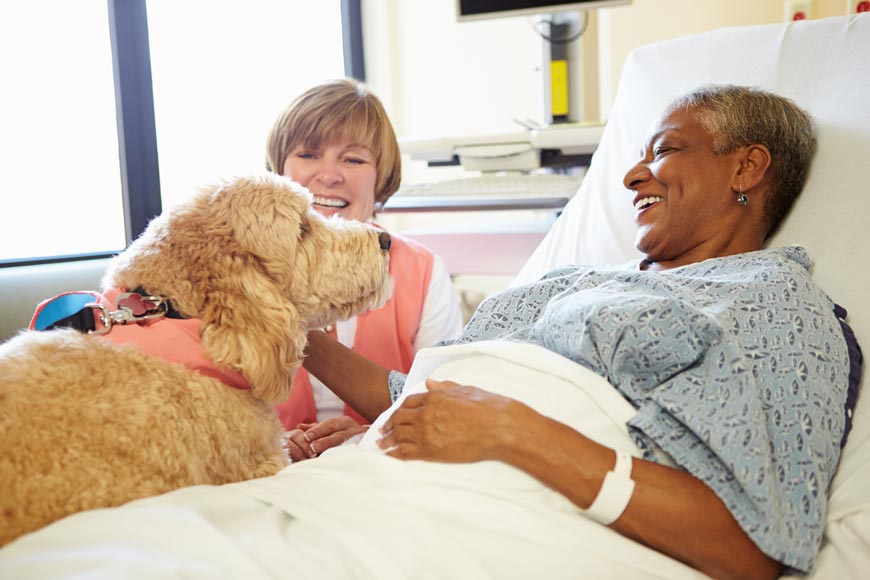Can Dogs Sniff out Infections?

Dogs can be companions, stress-relief partners, protectors, and helpers. A growing body of evidence suggests they can be trained to alert us to the growth of certain types of cancer in our bodies. Science is now exploring another way in which dogs might be helpful to our health and wellbeing.
Dogs and Clostridium Difficile
Widespread use of antibiotics over the past few decades has resulted in the rise of bacteria known as "superbugs," including a potent strain called Clostridium difficile, or C. Diff. C. Diff usually strikes people who are hospitalized for other conditions and who receive antibiotics. C. Diff takes advantage of the disruption in the person's gut flora caused by the antibiotics to set up shop, resulting in severe diarrhea, stomach pain, fever, and nausea. C. Diff is sometimes fatal.
In order to prevent C. Diff from spreading, it's crucial that doctors have a way to diagnose it early so that the patient can be isolated and treated. However, it can be quite difficult to diagnose C. Diff early in its course. Tests for its presence can be expensive, and getting results is slow. In fact, people with C. Diff may not be isolated and treated for up to a week, resulting in increased spread of the bacteria and decreased success of treatment.
A team of researchers in the Netherlands trained a beagle named Cliff to identify the scent of a person affected by C. Diff. After two months of training, Cliff's accuracy was tested by asking him to determine whether or not each of 100 stool samples contained the bacteria. Cliff was right on all of the positive samples (50/50) and wrong on only three negative samples (47/50).
Cliff was later used during an active hospital outbreak of C. Diff, and he proved quite helpful in identifying patients who were in the early stages of infection. Training and using a dog to identify patients infected with C. Diff early in the disease process could safe time, money, and ultimately, human lives.
Dogs and their noses are amazing, and it seems as though science has only begun to scratch the surface on how they can help us identify and manage human health problems.
References
- Stanley Coren PhD., D. F. (2014, July 2). Infection Detection Dogs. Retrieved from Psychology Today.
You May Also Like These Articles:
5 Dogs (or Dog Teams) Made Famous by History
8 Ways Dogs Can Help People with Health Conditions
Is It OK to Let Your Dog Lick Your Face?
Things We Do That Annoy Our Dogs - Slideshow
Service Dogs Can Help Autistic Children: VIDEO
Disclaimer: This website is not intended to replace professional consultation, diagnosis, or treatment by a licensed veterinarian. If you require any veterinary related advice, contact your veterinarian promptly. Information at DogHealth.com is exclusively of a general reference nature. Do not disregard veterinary advice or delay treatment as a result of accessing information at this site. Just Answer is an external service not affiliated with DogHealth.com.

